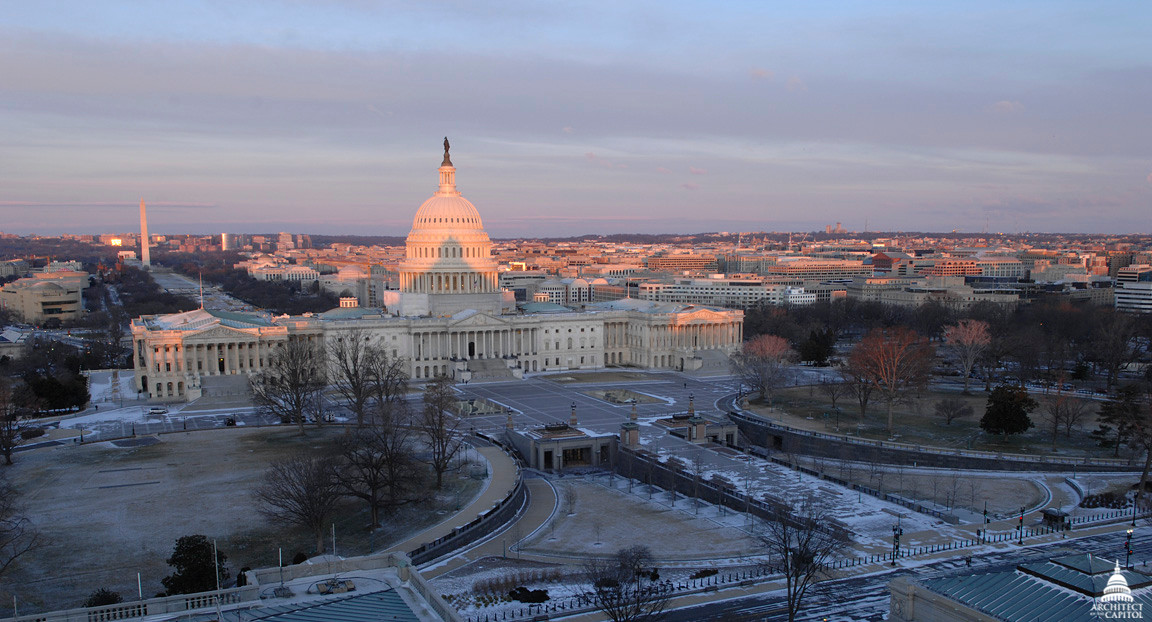Groups Slam GOP SAFE DATA Act
Says it doesn't protect consumer privacy

The smarter way to stay on top of the streaming and OTT industry. Sign up below.
You are now subscribed
Your newsletter sign-up was successful
New America’s Open Technology Institute (OTI) and almost a dozen other civil society groups are strongly against the Republicans' latest effort to come up with national privacy legislation.
That came in a letter to the Senate Commerce Committee opposing the American Framework to Ensure Data Access, Transparency, and Accountability Act (SAFE DATA Act).
The committee is holding a hearing Sept. 23 titled "Revisiting the Need for Federal Privacy Legislation."
Related: Senate Commerce to Revisit National Privacy Legislation
The bill, which is a revise of the United States Consumer Data Privacy Act, a draft of which was released in November 2019.
The bill would:
1. "Require businesses to allow consumers to access, correct, delete, or port their data;
The smarter way to stay on top of the streaming and OTT industry. Sign up below.
2. "Prohibit businesses from processing or transferring consumers’ sensitive data without their consent;
3. "Prohibit businesses from denying consumers products or services for exercising their privacy rights;
4. "Minimize the amount of consumer data businesses can collect, process, and retain;
5. "Limit secondary uses of consumer data without their consent;
6. "Establish uniform data protections across the country enforced by the Federal Trade Commission (FTC) and state attorneys general;
7. "Direct businesses to be more transparent and accountable for their data practices by:
8. "Require businesses to disclose a privacy policy to consumers detailing their data collection, processing, and transfer activities, and notify consumers of any material changes to those activities;
9. "Require businesses to conduct privacy impact assessments of data processing activities that may present a heightened risk of harm to consumers;
10. "Require businesses to secure consumers’ data and maintain internal controls and reporting structures to assess data privacy risks to consumers; and
11. "Require online platforms to be transparent about their use of secret algorithms.
12. "Authorize the FTC to develop new rules to expand categories of sensitive data;
13. "Require the FTC to share any information with the appropriate Executive or State agency if it obtains information that a business has processed or transferred consumer data in a way that violates Federal anti-discrimination laws;
14. "Require the FTC to maintain a data broker registry;
15. "Expand the FTC’s authority to oversee the data use practices of common carriers and nonprofit organizations; and
16. "Restore the FTC’s authority to obtain monetary remedies for consumers."
That sounds like a lot, but OTI and company don't see it that way. They say it would not protect consumer privacy and lacks the basic principles https://newamericadotorg.s3.amazonaws.com/documents/Public_Interest_Privacy_Principles.pdf) that would have to be in any "meaningful" data protection bill: 1) strong, meaningful and comprehensive privacy protections; 2) civil rights protections; 3) a whole of government approach; and 4) a private right of legal action.
“As Congress revisits the need for federal privacy legislation, members should reject legislative proposals that fail to meaningfully curtail invasive online tracking and data-driven discrimination," said Christine Bannan, policy counsel at OTI. "The SAFE DATA Act would cement the flawed “notice and consent” model that places the burden of protecting privacy on individual users rather than the companies that exploit personal data.”
Both Republicans and Democrats agree there needs to be national legislation, but remain divided over how it should be constructed and enforced.
Signing on to the letter were Access Now, American Association for Justice, Campaign for a Commercial-Free Childhood, Center for Digital Democracy, Color of Change, Common Cause, Constitutional Alliance, Consumer Action, Consumer Federation of America, Fight for the Future, Free Press Action, Media Alliance, National Hispanic Media Coalition, National Workrights Institute, New America's Open Technology Institute, Parent Coalition for Student Privacy, Privacy Rights Clearinghouse, Public Citizen, Public Knowledge, and U.S. PIRG.
Witnesses for the hearing are former Federal Trade Commissioner Julie Brill and former chairs William Kovacic and Jon Leibowitz, as well as former acting chair Maureen Ohlhausen.
There is bipartisan Hill support, as well as industry support, for some form of privacy legislation. But what form that takes continues to divide legislators along party lines.
Contributing editor John Eggerton has been an editor and/or writer on media regulation, legislation and policy for over four decades, including covering the FCC, FTC, Congress, the major media trade associations, and the federal courts. In addition to Multichannel News and Broadcasting + Cable, his work has appeared in Radio World, TV Technology, TV Fax, This Week in Consumer Electronics, Variety and the Encyclopedia Britannica.

